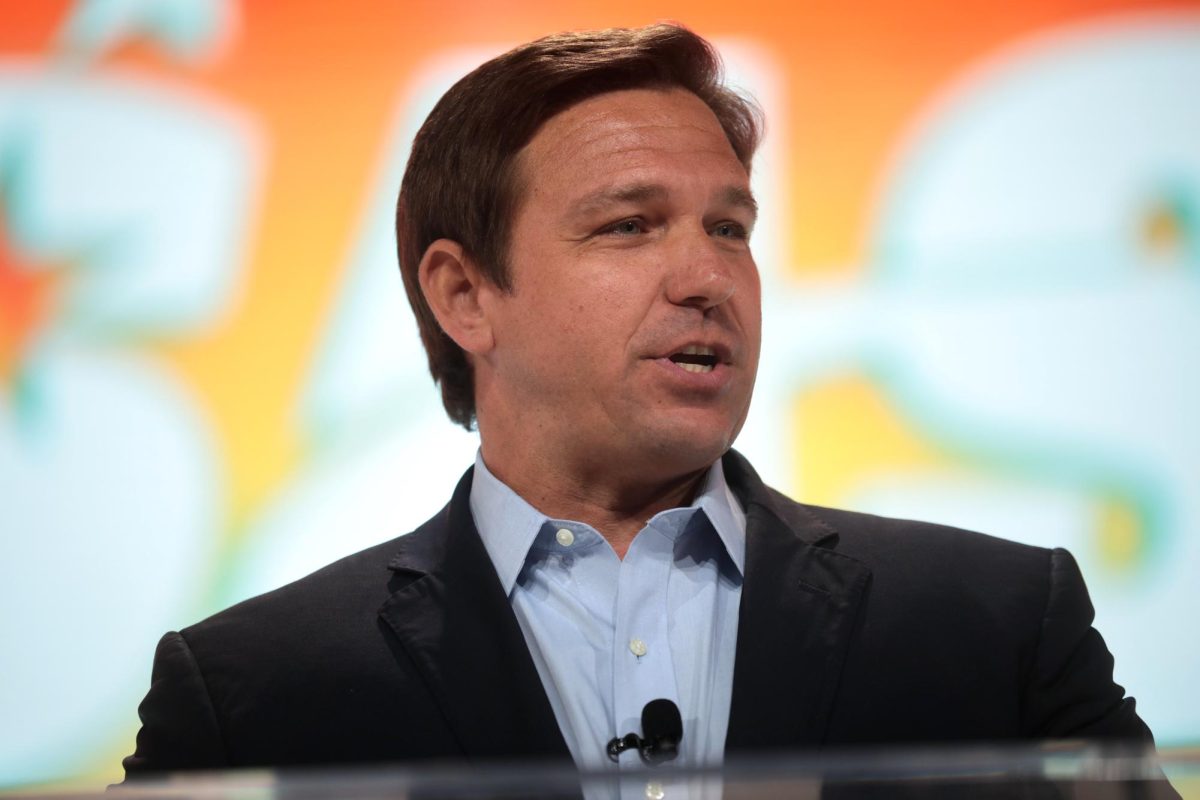
Benjamin Joffe is a sophomore political science major.
On Nov. 5, President Biden’s $1.2 trillion bipartisan infrastructure bill passed in Congress and will be signed by the President within the next week.
The bill will provide billions of dollars to states for the improvement of roads and other transportation infrastructure, as well as the expansion of broadband internet service, endeavors which will hopefully stimulate the economy.
The passage of the bill, a major staple in Biden’s platform, is a big win for his administration, but there is still much to do for Biden to make good on his campaign promises.
Unfortunately, several factors make it unlikely that many of Biden’s other proposals will ever come to fruition, at least not in their intended form.
Not all of this is Biden’s fault; Senators Kyrsten Sinema (D-AZ) and Joe Manchin (D-WV) have made it nearly impossible for Democrats to get meaningful legislation through the Senate, as the Senate is finely split 50-50, needing all Democrats to vote for a bill for it to pass via reconciliation. Even a single “no” vote from Manchin or Sinema can block a bill in the Senate.
It’s also no secret that they are servants of special interests.
Manchin, who stated he would vote against raising the corporate tax rate to 28% (a major campaign promise from Biden), was conveniently paid $212,000 in campaign donations from private equity firms, who would no doubt suffer from such a tax raise.
Manchin also fights his fellow Democrats on plans to combat climate change, saying he will vote against legislation that moves energy consumption away from fossil fuels. Funny enough, Manchin was paid a smooth $400,000 in campaign donations from fossil fuel interests.
Sinema is far more confusing; unlike Manchin, she keeps her agendas less explicit. Regardless of her motivations, she is holding up Democrats’ major legislative priorities, such as increasing the minimum wage, to which she has now famously given a thumbs down.
It is difficult to not feel helpless in this situation. Basically, the course of our nation, our climate and our laws lie in the hands of two senators, the first of whom, Manchin, is being paid off by malicious special interests, the other, Sinema, is guided by god-knows-what, perhaps by her personal whims and principles, or perhaps by securing her re-election prospects in Arizona.
But the situation has changed for Manchin and Sinema.
Now that the infrastructure bill is passed, Democrats move their eyes on what is to be the magnum opus of Biden’s agenda: the $1.75 trillion Build Back Better spending plan, which plans to fund universal preschool nationwide, affordable housing, programs to combat climate change and much more.
Because support from all 50 Democrat senators is needed to pass the spending plan, Manchin and Sinema will need to be won over. That could mean making a number of cuts to the bill to appease them.
A major part of the plan, the Clean Energy Performance Program, which would have incentivized utility companies to switch to green energy, has already been cut because of Manchin’s reservations.
Sinema also got her way when she opposed increases in corporate tax rates as the chief way of funding the bill, leaving Democrats looking for other ways to fund it.
Negotiation and compromise are a natural part of passing legislation, but the leverage held by Sinema and Manchin creates uncertainty on how the spending plan will look once the smoke clears and a final bill is proposed.
The Democrats truly have what may be a once-in-a-generation opportunity to pass legislation of this significance. For this reason, they must stay firm on keeping the guiding principles of the spending plan intact.
Furthermore, pressure is mounting to get the spending plan on the President’s desk sooner rather than later. Following the Republican win in Arizona’s gubernatorial election, Democrats are on track to lose big in the 2022 midterm elections.
If Republicans gain control of the House and the Senate, much of Biden’s agenda will be impossible to pass. That means that the timeline to get Biden’s spending bill passed has moved up considerably.
This reality may put added pressure on Democrats to concede to Sinema’s and Manchin’s demands, which only increases uncertainty on what the final bill will look like.
There is also a growing feeling that as Biden’s administration moves along, much of his platform isn’t being fulfilled not because he has hit a legislative roadblock, but because he simply refuses to make those changes by using the power vested in him.
For example, both Senate Minority Leader Chuck Schumer and Sen. Elizabeth Warren have requested that Biden use an executive order to forgive up to $50,000 of federal student loans for every borrower with federal student loans.
While relieving the student loan crisis is a large promise made by Biden, he has expressed resistance to using executive power to do this.
This is just one of the many potential actions Biden can take via executive power to make good on his promises.
Overall, as approval ratings sink and the midterms creep closer and closer, the legislative future of Biden’s tenure is uncertain. Democrats in Congress need to up the pressure on Sinema and Manchin if they plan to pass bills such as the Build Back Better spending plan.


















